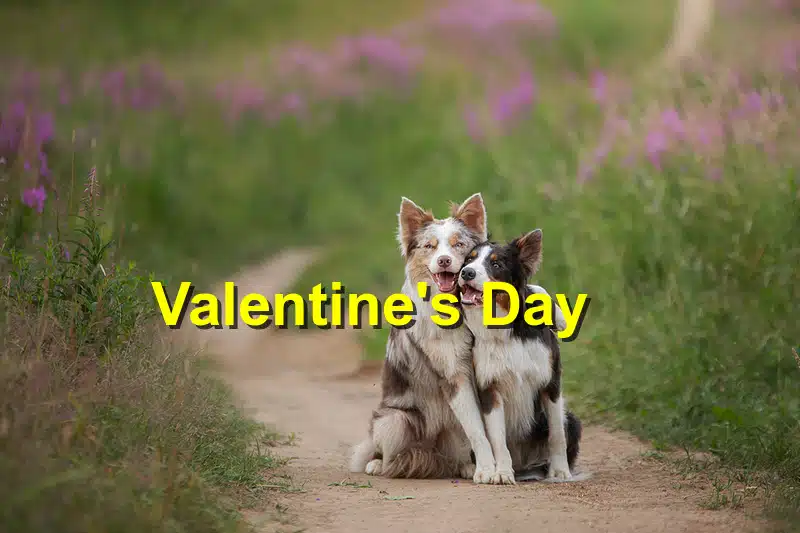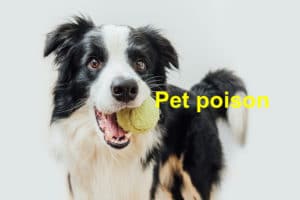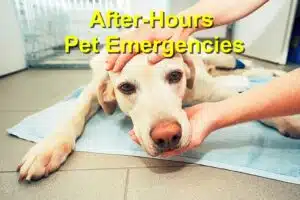Valentine’s Day is a time for love, chocolates, and special treats—but while we celebrate, our pets may be at risk. Many Valentine’s Day favorites, from chocolate and candy to flowers and alcohol, can be toxic to dogs and cats. To ensure your furry friend stays safe, it’s essential to know which foods to keep out of reach and what to do in case of accidental ingestion.
Here’s how to protect your pet from toxic Valentine’s Day foods while still enjoying the holiday.
1. Chocolate: A Valentine’s Day Danger
Chocolate is one of the most popular Valentine’s Day gifts, but it’s also one of the most toxic foods for pets. It contains theobromine and caffeine, which can cause severe health problems in dogs and cats.
Why Chocolate is Dangerous for Pets:
- The darker the chocolate, the more toxic it is. Dark chocolate and baking chocolate contain higher levels of theobromine.
- Symptoms of chocolate poisoning: Vomiting, diarrhea, rapid heart rate, tremors, and seizures.
- Even small amounts can be harmful to smaller pets.
How to Prevent Chocolate Poisoning:
✅ Keep all chocolate treats out of reach.
✅ Store chocolate in closed cabinets or high shelves.
✅ Educate family members about the risks.
If your pet eats chocolate, call your veterinarian or a pet poison hotline immediately.
2. Sugar-Free Candy and Xylitol
Many sugar-free candies, gum, and even baked goods contain xylitol, an artificial sweetener highly toxic to pets.
Why Xylitol is Dangerous for Pets:
- It can cause a rapid drop in blood sugar (hypoglycemia), seizures, and liver failure.
- Even a small amount can be life-threatening, especially for dogs.
- Symptoms include vomiting, weakness, tremors, and collapse.
How to Keep Pets Safe:
✅ Check ingredient labels before giving any treats.
✅ Keep sugar-free candies and gum stored safely.
✅ Choose pet-friendly treats instead.
If you suspect xylitol poisoning, seek emergency veterinary care immediately.
3. Alcohol and Caffeinated Drinks
Valentine’s Day celebrations often include wine, cocktails, and coffee, but these drinks can be harmful—even in small amounts.
Why Alcohol and Caffeine Are Dangerous for Pets:
- Alcohol poisoning: Causes confusion, vomiting, difficulty breathing, and even coma.
- Caffeine toxicity: Leads to restlessness, increased heart rate, and seizures.
How to Prevent Accidental Ingestion:
✅ Keep drinks out of reach, even on tables or countertops.
✅ Never leave an open glass unattended.
✅ Offer only fresh water for your pet.
If your pet accidentally consumes alcohol or caffeine, contact a veterinarian right away.
4. Valentine’s Day Flowers: Toxic Blooms to Avoid
Many flower bouquets given on Valentine’s Day contain plants that can be toxic to pets, especially cats.
Common Toxic Flowers for Pets:
🚫 Lilies (extremely toxic to cats—can cause kidney failure)
🚫 Tulips and daffodils (can cause vomiting and heart issues)
🚫 Baby’s breath (causes stomach upset in dogs and cats)
Safe Alternatives:
🌿 Roses (without thorns)
🌿 Sunflowers
🌿 Orchids
If your pet chews on a plant, identify the flower and call your vet to determine toxicity risks.
5. Rich and Fatty Foods
Romantic Valentine’s Day dinners often include rich, fatty foods, but these can lead to digestive issues in pets.
Foods to Avoid Giving Pets:
- Steak and fatty meats (can cause pancreatitis)
- Cheese and dairy (many pets are lactose intolerant)
- Garlic and onions (toxic to dogs and cats, can cause anemia)
Instead, give your pet healthy, pet-safe treats to include them in the celebration.
6. Pet-Safe Valentine’s Day Treats
Want to share the love with your furry friend? Try these safe and healthy Valentine’s Day treats:
💖 Frozen banana bites – Blend banana and peanut butter (xylitol-free) and freeze.
💖 Homemade peanut butter dog cookies – Use pet-safe ingredients like oats and applesauce.
💖 Carrot or apple slices – A crunchy, healthy treat for dogs.
💖 Catnip treats – A fun way to spoil your feline friend.
Avoid sharing human food and stick to pet-approved treats.
7. What to Do If Your Pet Eats Something Toxic
If your pet eats a dangerous Valentine’s Day treat, act quickly:
🚨 Call your veterinarian or a pet poison control hotline immediately:
📞 ASPCA Animal Poison Control: (888) 426-4435
📞 Pet Poison Helpline: (855) 764-7661
🚨 Do NOT try home remedies unless advised by a vet.
🚨 Monitor symptoms like vomiting, drooling, tremors, or lethargy.
Fast action can save your pet’s life.
Conclusion
Valentine’s Day is all about love, and keeping your pet safe is the best way to show you care. By avoiding toxic foods like chocolate, xylitol, and rich human foods, you can ensure your furry friend enjoys the holiday safely. Instead, opt for pet-friendly treats, safe flowers, and cozy snuggles to celebrate with them.
With a little extra precaution, you and your pet can have a safe, happy, and love-filled Valentine’s Day! 💕🐶🐱
References: Veterinary Partner, Vester




